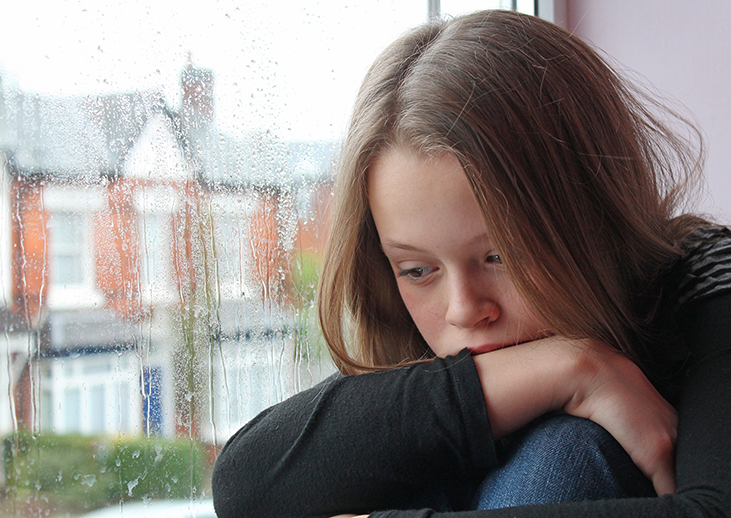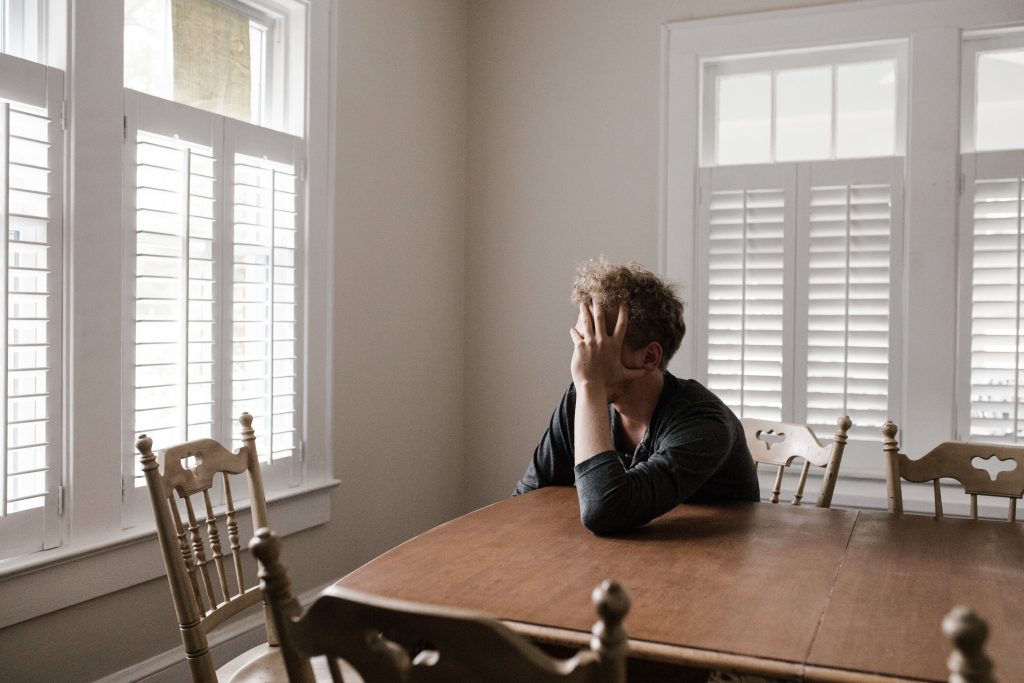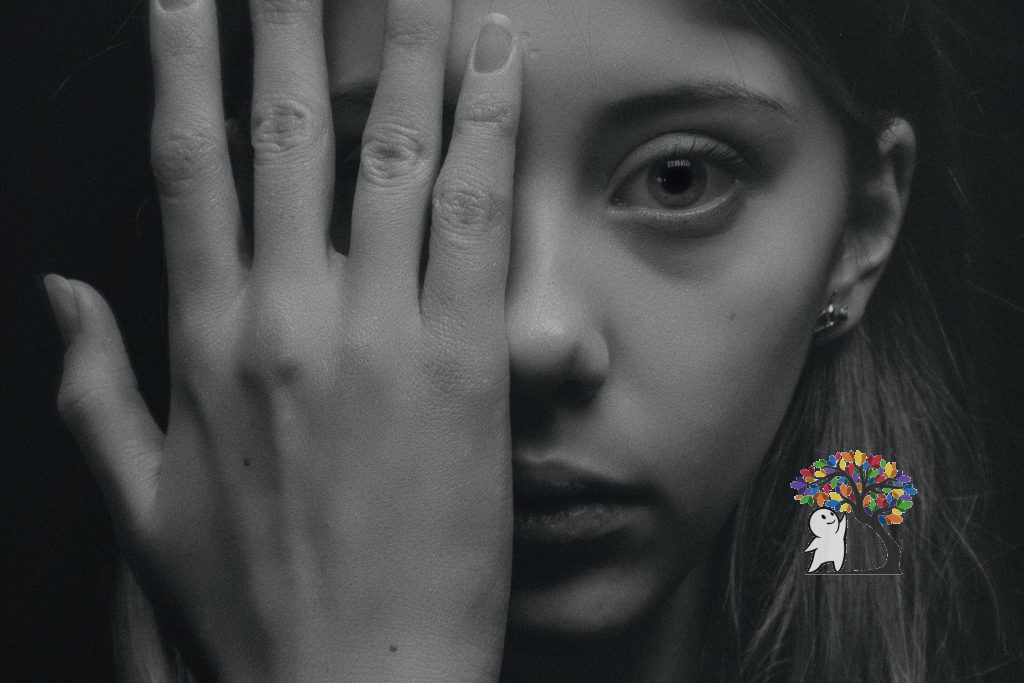8 Things That Are Ruining Your Life

Perhaps Edmund Hillary, first man to climb Mount Everest, said it best when he said, “It is not the mountain we conquer, but ourselves.”
All too often do we find ourselves struggling to win against our own self-defeating tendencies. We make bad decisions; fall in love with the wrong people; and do things we regret. And though some might say falling down and getting hurt is all a part of the roller coaster that we call life, the sad truth is, we are to blame for a lot of the pain we experience.
So much of our own suffering is self-inflicted because we think that tearing ourselves down and criticizing ourselves is a path to personal growth. But true healing and positive change doesn’t come from a place of hatred and hostility, but of understanding, honesty, and acceptance. And in order to truly move forward in life and attain happiness and success, we need to take an honest look at the role we play in our own suffering.
With that said, here are 8 things you may be guilty of that are ruining your life without you even realizing it:
1. Holding grudges
As Confucius once wisely said, “To be wronged is nothing, unless you continue to remember it.” And though we’ve all been taught from a young age how important it is to forgive and forget, a lot of us still struggle with our anger and hatred for those who once hurt us. We hold onto these grudges because we want to hurt other people the way they hurt us, but in doing so, we only end up hurting ourselves the most. Countless studies have reported that holding onto grudges not only worsens our anxiety but also negatively impacts our happiness, life satisfaction, and general sense of well-being (Baumeister & Else, 2020).

2. Overthinking
Do you consider yourself an overthinker? Do you often spend a lot of time organizing, planning, and worrying about your future? While it’s certainly good to have a plan and set goals for ourselves, it’s also important that we remember not to get too caught up in it that we lose sight of the present and forget to live in the moment! We’re constantly worrying about what the future might bring that we fail to realize when we’re right in the middle of all the things we once looked forward to.

3. Unhealed trauma
More than just the dangers presented by a life-or-death situation, trauma can come in many different forms. The most common examples involve experiences of death, violence, humiliation, assault, abuse, and neglect. The suicide of a loved one, for example, or the abandonment of a parent can both be considered traumatic experiences, especially if they happen at a young age. And the longer this trauma goes unaddressed, the harder it will be to heal from it, and the worse the repercussions become. In most cases, victims with unhealed trauma struggle with feelings of self-blame, guilt, depression, and low self-esteem (David, Ceschi, Billieux, & Van der Linden, 2008).

4. Toxic relationships
Imagine having a narcissist for a partner, someone who only ever cares about themself and what you can do for them. What about being surrounded by fake friends who are never there when you need them and only get close to you so they can stab you in the back? Both scenarios sound equally terrible, right? Well, when you’re in a toxic relationship (be it romantic or platonic), you’re definitely going to fall victim to a lot of torment, hostility, insecurity, emotional manipulation, and many other unhealthy relationship dynamics (Waldinger, 2015). Not only that, but by staying in a toxic relationship, you are depriving yourself of the opportunity to find better, more fulfilling friendships and romantic partnerships with others.

5. Learned helplessness
A term coined by pioneer of Positive Psychology Martin Seligman (2012), “learned helplessness” is defined as “a sense of powerlessness, often arising from a traumatic event or persistent failure to succeed, that tends to develop into depressive and self-destructive behavioral patterns and tendencies.” Simply put, learned helplessness is what happens when you have a victim mindset; that is, you are constantly justifying your failures and mistakes by blaming it on others and believing that there’s nothing you can do to change your life for the better. People who struggle with learned helplessness lack the emotional maturity to take responsibilities for their actions and, as a result, do not grow or learn from their mistakes. They often remain stuck in their ways, never moving forward in life.

6. Materialism
While there’s certainly no denying that money can buy you a lot of peace of mind and that financial security allows you to live a more comfortable life, letting materialism and greed get the best of you is only going to do so much more harm than good in your life. Obsessing over having the latest, most expensive phone, for example, and slaving away to attain it can be draining and disheartening, because at the end of the day, there’s always going to be someone else who has more than you .

7. Emotional denial
When we find ourselves dealing with a lot of difficult emotions, most of us may opt for the easy way out and just ignore the problem until it goes away. But we all know life is rarely ever that easy. And no matter how good we might think we are at burying our feelings and denying that there’s anything wrong, deep down inside, we know we’re still hurting. And repressing these emotions will only push us towards unhealthy coping mechanisms (such as drinking, partying, smoking, self-harming, etc) as a way to numb the pain (Perry, Perry, & English, 2005).

8. Insecure attachment
Finally, but perhaps most importantly, one way you may be hurting yourself and ruining your life without knowing it is by having an insecure attachment style. Developed by psychologists John Bowlby and Mary Ainsworth, Attachment Theory proposes that the emotional bonds we form with our parents at a young age unconsciously shapes the dynamics of all the other significant relationships in our lives as we grow older (Bowlby, 1979). So if you have an insecure attachment style (such as dismissive or anxious-avoidant), then you will most likely spend the rest of your life struggling to connect with people because of your abandonment issues or fears of intimacy. You can read more about it in our article “What Your Attachment Style Says About Your Personality.”

So, do you (unfortunately) relate to any of the things we’ve mentioned here? Do you find yourself guilty of doing or having any of these things that might be ruining your life? If you answered yes, that’s okay! After all, the first step to overcoming any problem is to acknowledge it. Know what problematic behaviors or thought patterns may be hurting you and work towards changing them into more positive habits and practices. Don’t hesitate to reach out to a mental healthcare professional as well if you are struggling.
And remember, in the wise words of poet and author Najwa Zebian, “These mountains that you are carrying, you were only ever supposed to climb.”
References:
- Baumeister, R.F., & Else, A. (2020). Internalizing Happiness: A Study on Grudge Theory and the Dimensions of Forgiveness. Psychological research and theological perspectives, 79-104.
- David, M., Ceschi, G., Billieux, J., & Van der Linden, M. (2008). Depressive symptoms after trauma: is self-esteem a mediating factor?. The Journal of Nervous and Mental Disease, 196(10), 735-742.
- Waldinger, R. (2015). What makes a good life? Lessons from the longest study on happiness. Retrieved, 15, 2018.
- Seligman, M. E. (2012). Flourish: A visionary new understanding of happiness and well-being. Simon and Schuster.
- Perry, L. C., Perry, D. G., & English, D. (2005). Happiness: When does it lead to self-indulgence and when does it lead to self-denial?. Journal of Experimental Child Psychology, 39(2), 203-211.
- Bowlby, J. (1979). The Bowlby-Ainsworth attachment theory. Behavioral and Brain Sciences, 2(4), 637-638.



Responses